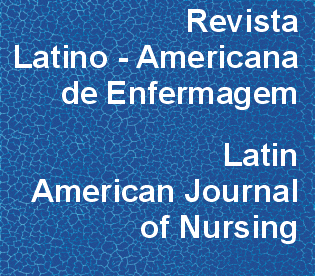Acadêmicos de enfermagem, nutrição e fisioterapia: a escolha profissional
DOI:
https://doi.org/10.1590/S0104-11692009000300018Palavras-chave:
escolha da profissão, poder^i3^sPsicolo, enfermagem, fisioterapia^i3^sespecialid, nutricionista, pessoal de saúdeResumo
Sob o aspecto da escolha profissional, o ingresso na universidade traz embutido significados de autorrealização e status social, nos quais perpassam conceitos e ideais construídos no viver da pessoa. O objetivo do estudo foi analisar regimes de verdade que permeiam a escolha profissional da enfermagem, fisioterapia e nutrição. É um estudo descritivo, de abordagem qualitativa, com ingressantes na graduação. Coleta de dados foi realizada com grupos focais, avaliados pela análise de discurso, sob o olhar de Focault. Da análise emergiram as temáticas: - escolha profissional: coroamento de um processo de diferenciação social, - reflexos da história de reconhecimento das profissões, - a escolha profissional para além de projetos profissionais. Os discursos assinalam que o conhecimento científico adquire status nas relações de poder entre as diferentes profissões e a sociedade, sendo fundamental que a formação de profissionais de saúde esteja articulada às políticas públicas que ampliam a participação de diferentes profissões, a fim de atender às demandas em prol da atenção integral.Downloads
Os dados de download ainda não estão disponíveis.
Downloads
Publicado
2009-06-01
Edição
Seção
Artigos Originais
Licença
Os direitos autorais são de propriedade exclusiva da revista, transferidos por meio da Declaração de Transferência de Direitos Autorais (presente no Formulário Individual de Declarações) assinada pelos autores. Para a utilização dos artigos, a RLAE adota a Licença Creative Commons, CC BY-NC Atribuição não comercial (resumo ou código completo da licença). Com essa licença é permitido acessar, baixar (download), copiar, imprimir, compartilhar, reutilizar e distribuir os artigos, desde que para uso não comercial e com a citação da fonte, conferindo os devidos créditos autorais a Revista Latino-Americana de Enfermagem. Nesses casos, nenhuma permissão é necessária por parte dos autores ou dos editores.Como Citar
Ojeda, B. S., Creutzberg, M., Feoli, A. M. P., Melo, D. da S., & Corbellini, V. L. (2009). Acadêmicos de enfermagem, nutrição e fisioterapia: a escolha profissional. Revista Latino-Americana De Enfermagem, 17(3), 396-402. https://doi.org/10.1590/S0104-11692009000300018



